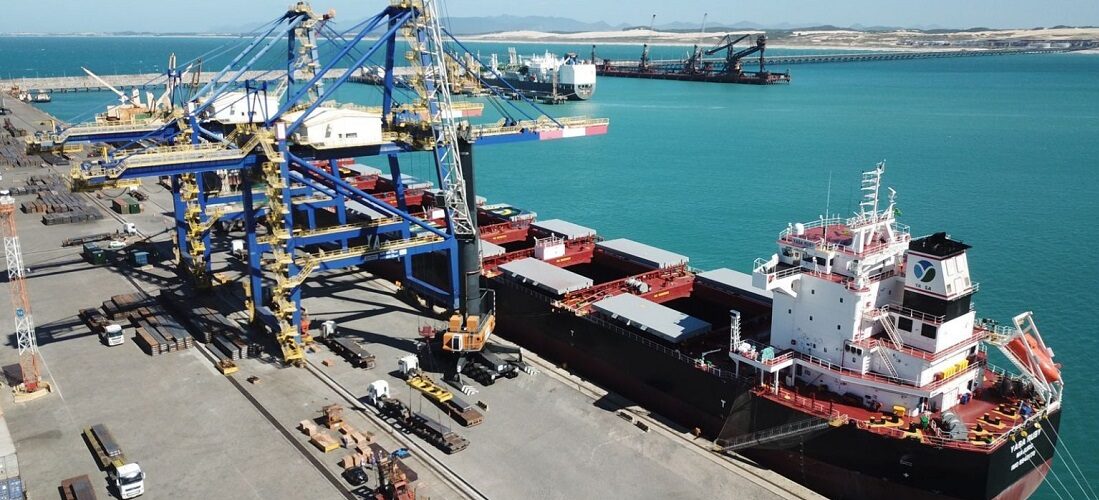
Pecém Port Signs Agreement to Expand “Green Corridor” to Germany
Dec, 13, 2024 Posted by Denise VileraWeek 202448
The ports of Pecém, in Ceará (Brazil), Rotterdam, in the Netherlands, and Duisport, in Germany, signed a memorandum of understanding on December 11 to expand the so-called Green Corridor—which currently connects Ceará to Rotterdam—extending it to Germany. The agreement focuses on transporting alternative fuels, including e-methanol, green ammonia, and other derivatives, to support Europe’s decarbonization and energy security goals, aligning with the continent’s climate targets.
The aim is to support Brazil’s energy transition, develop green energy generation projects, and bring economic and social prosperity to the Northeast region.
“This agreement is a fundamental step in connecting strategic regions for the production and consumption of clean energy while also supporting Brazil’s energy transition and green energy generation,” said Jade Romero (MDB), Vice Governor and Secretary of Women, who represented Ceará’s Governor Elmano de Freitas (PT).
Hugo Figueirêdo, president of the Pecém Complex, recalled that the Green Corridor was formalized in May 2023 in the presence of the then Prime Minister of the Netherlands, Mark Rutte. “Expanding it to Germany strengthens our competitiveness and broadens the European market for green hydrogen produced in Ceará. This not only boosts our state’s economy but also benefits the development of the entire Northeast region,” he stated.
CLEAN ENERGY
The memorandum highlights Ceará and Northeast Brazil’s potential for solar and wind energy generation, which positions the region as a key exporter of low-cost green hydrogen derivatives. It also underscores the central role of the Netherlands in connecting Brazil’s alternative fuel supplies to Germany. The Port of Rotterdam expects to import around 18 million tons of hydrogen and its derivatives by 2050, with a significant portion arriving through maritime vessels accessing the Rhine Delta Corridor. This corridor includes a network of pipelines, maritime infrastructure, and inland navigation systems connected to the Ruhr region, Duisport, and the rest of Germany.
The document outlines Duisport’s commitment to supporting Pecém Port’s development and contributing expertise to expand connections with the European hinterland.
“The agreement signed today marks a significant step towards the green transformation of industry in Germany and Europe. Establishing stable supply chains enables sustainable decarbonization and strengthens the resilience and competitiveness of the economy. Duisport acts as a central logistics hub in the heart of Europe and will make an important contribution to the energy transition,” said Markus Bangen, CEO of Duisport.
Source: Opinião CE
-
Shipping
Jul, 27, 2021
0
Ship with 14 crew with Covid-19 begins quarantine at the Port of Santos, SP
-
Ports and Terminals
Jul, 21, 2023
0
Authorities seize yet another 28.5 kg of cocaine in Brazil’s Paranagua Port
-
Shipping
Nov, 25, 2019
0
Maritime transport agreement between Brazil and Chile ends
-
Meat
Apr, 10, 2024
0
Brazil chicken exports reach record volume in March



